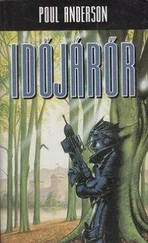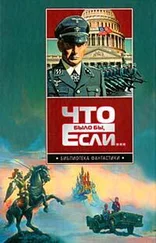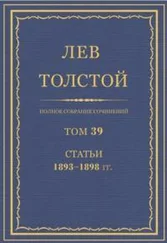Eric Flint - Carthago Delenda Est
Здесь есть возможность читать онлайн «Eric Flint - Carthago Delenda Est» весь текст электронной книги совершенно бесплатно (целиком полную версию без сокращений). В некоторых случаях можно слушать аудио, скачать через торрент в формате fb2 и присутствует краткое содержание. Жанр: Боевая фантастика, на английском языке. Описание произведения, (предисловие) а так же отзывы посетителей доступны на портале библиотеки ЛибКат.
- Название:Carthago Delenda Est
- Автор:
- Жанр:
- Год:неизвестен
- ISBN:нет данных
- Рейтинг книги:3 / 5. Голосов: 1
-
Избранное:Добавить в избранное
- Отзывы:
-
Ваша оценка:
- 60
- 1
- 2
- 3
- 4
- 5
Carthago Delenda Est: краткое содержание, описание и аннотация
Предлагаем к чтению аннотацию, описание, краткое содержание или предисловие (зависит от того, что написал сам автор книги «Carthago Delenda Est»). Если вы не нашли необходимую информацию о книге — напишите в комментариях, мы постараемся отыскать её.
Carthago Delenda Est — читать онлайн бесплатно полную книгу (весь текст) целиком
Ниже представлен текст книги, разбитый по страницам. Система сохранения места последней прочитанной страницы, позволяет с удобством читать онлайн бесплатно книгу «Carthago Delenda Est», без необходимости каждый раз заново искать на чём Вы остановились. Поставьте закладку, и сможете в любой момент перейти на страницу, на которой закончили чтение.
Интервал:
Закладка:
It had often struck Ainsley, listening to the tales of the legionnaires, how easily they had adapted to their sudden plunge into galactic society. No modern human, he thought, would have managed half as well. Their very ignorance had, in a sense, protected them. The world, to ancient Romans, was full of bizarre things anyway. Every Roman knew that there lived-somewhere south of Egypt, maybe-people with tails and heads in their bellies. A modern human, dropped onto a battlefield against aliens, would have probably been paralyzed with shock and horror. To the Romans, those aliens had just seemed like weird men-and nowhere near as dangerous as Parthians.
Ainsley, catching a glimpse of Pompilius Niger across the room, smiled. Only an ancient Roman would have so doggedly tried to make mead by following something that might be a funny-looking bee. A modern human would have understood the biological impossibility of the task.
And, in that wisdom, died in the hands of the Guild.
He looked back at Quartilla.
And so it had been with her and Gaius. The ancient Roman had been frightened and repelled by her scaly reptilian skin, when he first met her. But he had never thought she was anything but a-person.
“I am glad,” he said quietly. “I approve of that decision. You understand, of course, that your children will face some difficulties, because of it.”
Quartilla shrugged. It was a serene gesture.
“Some, yes. But not many, I think. If other children get too rough on them, Gaius says he will put a stop to it by simply crucifying a couple of the little bastards.”
Ainsley started to laugh; then choked on his own humor.
He stared across the room at Vibulenus. The tribune was standing in a corner of his villa’s huge salon, wine glass in hand, in a cluster of veterans who were having a vigorous and friendly exchange of war stories. With him were Clodius Afer, Julius Rusticanus-and all four of the Gha.
Good Lord. That’s probably not a joke.
He caught Quartilla watching him closely.
“No, Robert,” she murmured. “He is a Roman. He is not joking at all.”
XII
An hour later, Gaius Vibulenus called the meeting to order.
There were almost sixty former legionnaires sprawled everywhere in the great salon. Fortunately, Gaius owned an enormous villa. The entire estate-not far from Capua, to his delight-had been a historical museum before it was turned over to him by the Italian regional government, following the dictates of popular demand.
Many more legionnaires had offered to come, but Gaius had kept the invitations reasonably small. Too many people would make decisions impossible. Besides, the men in the room were, almost without exception, the surviving leaders of the Roman legion. All of the centurions were there, and almost all of the file-closers. Whatever decision they made would be accepted by the rest of the legionnaires.
“All right,” began Vibulenus, “you’ve all heard the Gha proposal. In its basic outline, anyway.”
He waved his hand airily. “I have it on the best authority that the Confederation government will give its backing to the scheme. Unofficially, of course.”
Clodius Afer sneered. “Those politicians? Be serious, Gaius! They’re even worse than that sorry lot of senators we left behind.”
Several other legionnaires grunted their agreement with that sentiment. Ainsley, watching, was amused. With few exceptions-Vibulenus, for one; and, oddly enough, Julius Rusticanus-the Romans had never been able to make sense out of modern politics. They tended to dismiss all of it as so much silly nonsense, which could be settled quick enough with just a few crucifixions.
Much as the historian admired-even loved-the Romans, he was glad not to have lived in their political world. True, much of modern politics was “so much silly nonsense.” But, much of it wasn’t, appearances to the contrary. And, modern man that he ultimately was, Ainsley thoroughly approved of the world-wide ban on capital punishment-much less torture.
“You’re wrong, Clodius,” rumbled Julius Rusticanus. The first centurion set down his wine goblet, almost ceremoniously, and stood up. Trained in the rhetorical traditions of the ancient world, he struck a solemn pose. His audience-just as well trained-assumed the solemn stance of listeners.
“Listen to me, Romans. Unlike most of you, I have paid careful attention to modern politics. And I do not share your contempt for it. Nor do I have any desire to listen to puling nonsense about the ‘glories of Rome.’ I remember the old politics, too. It was stupid Roman politics-the worst kind of personal ambition-that marched us all into that damned Parthian desert. Whatever folly there is in modern men-and there’s plenty of it-they are a better lot than we were.”
He glared around the room, as if daring anyone to argue with him. No one, of course, was foolish enough to do so. Not with the first centurion.
“No children starve, in this modern world. No old people die from neglect. No rich man takes a poor man’s farm by bribing a judge. No master beats his slave for some trifling offense. There are no slaves.”
Again, the sweeping glare. The silence, this time, came from more than respect. Whatever their crude attitudes, the legionnaires all knew that in this, at least, Julius Rusticanus spoke nothing but the plain and simple truth.
“So I’ll hear no sneering about ‘politicians.’ We humans have always had politicians. Our old ones were never any better-and usually a lot worse. I know why Gaius is confident that the Confederation will support the proposal. I don’t even need to know who his ‘best authority’ is. All I have to do is observe what’s in front of my nose.”
He laughed heartily. Theatrically, to Ainsley; but the historian knew that was an accepted part of the rhetoric. The ancients had none of the modern liking for subtle poses.
“The simple political reality is this, legionnaires,” continued Rusticanus. “The people, in their great majority, are now filled with anti-Galactic fervor.” Again, that theatrical laugh. “I think most of them are a bit bored with their peaceful modern world, to tell you the truth. They haven’t had a war-not a real one, anyway-in almost a hundred years. And this is what they call a crusade.”
“Won’t be able to fight, then,” grumbled one of the file-closers. “They’re all a pack of civilians.”
“Really?” sneered Rusticanus. “I’ll tell you what, Appuleius-why don’t you explain that to the Guild fleet? You know-the one that’s nothing more than gas drifting in space?”
The jibe was met with raucous laughter. Joyful, savage laughter, thought Ainsley. For all their frequent grumbling about “modern sissies,” the historian knew the fierce pride which the Romans had taken in Trumbull’s destruction of the Guild fleet.
The first centurion pressed home the advantage. He gestured-again, theatrically-to one of the Medics standing toward the side of the salon. This was the “old” Medic, not the “new” one-the stocky, mauve-skinned, three-fingered crewman from the ship the Romans had captured years earlier. A few months after their arrival on Earth, the troop transport’s Pilot had committed suicide. But the Medic had adjusted rather well to his new reality. He had even, over time, grown quite friendly with many of the legionnaires. Vibulenus had invited him to this meeting in order to take advantage of his Galactic knowledge.
“Tell them, Medic!” commanded Rusticanus. “Tell them how long it’s been since an entire Guild fleet was annihilated.”
The Medic stepped forward a pace or two. All the Romans were watching him intently, with the interest of veterans hearing the story of an unfamiliar campaign.
Читать дальшеИнтервал:
Закладка:
Похожие книги на «Carthago Delenda Est»
Представляем Вашему вниманию похожие книги на «Carthago Delenda Est» списком для выбора. Мы отобрали схожую по названию и смыслу литературу в надежде предоставить читателям больше вариантов отыскать новые, интересные, ещё непрочитанные произведения.
Обсуждение, отзывы о книге «Carthago Delenda Est» и просто собственные мнения читателей. Оставьте ваши комментарии, напишите, что Вы думаете о произведении, его смысле или главных героях. Укажите что конкретно понравилось, а что нет, и почему Вы так считаете.









